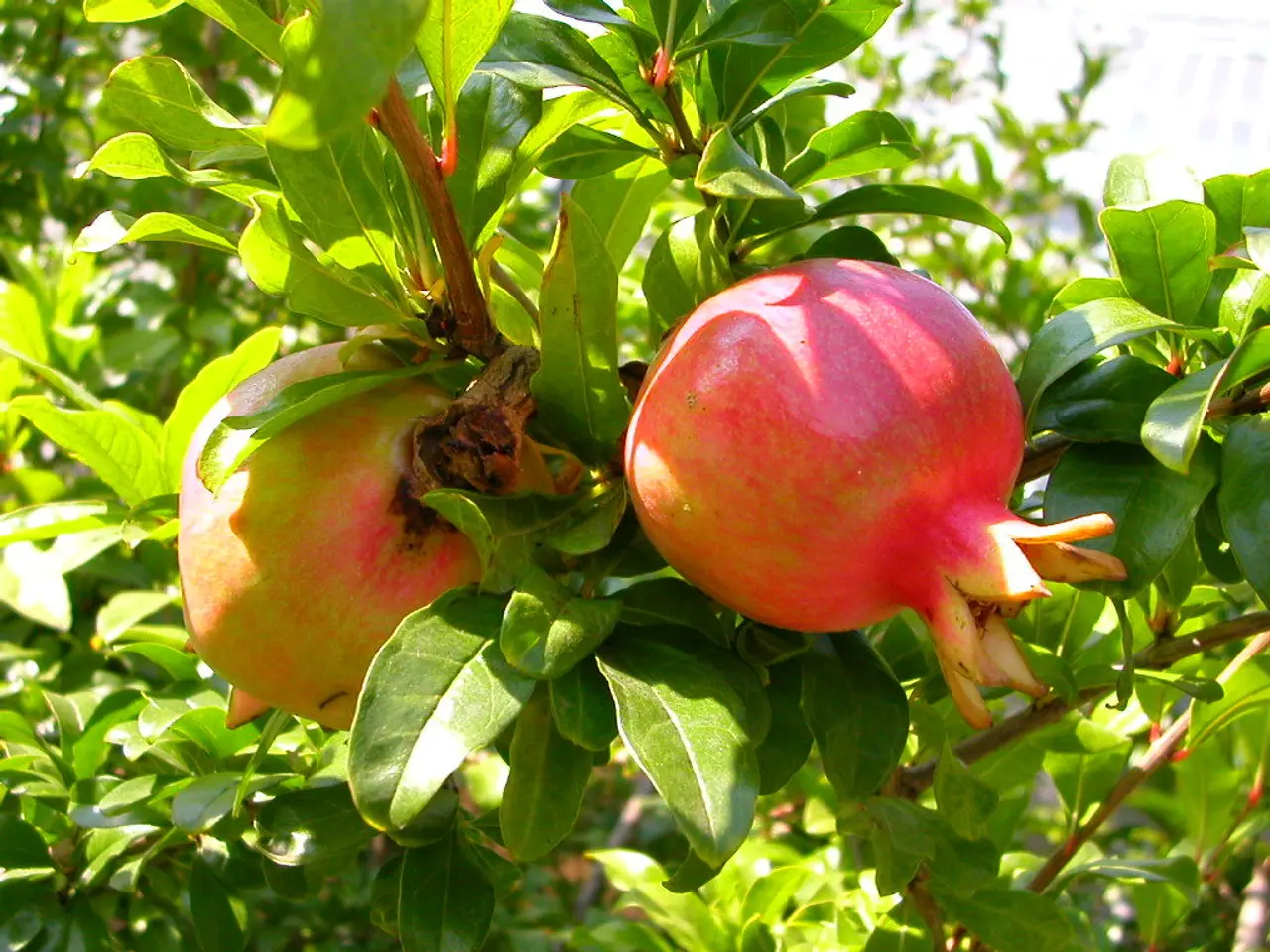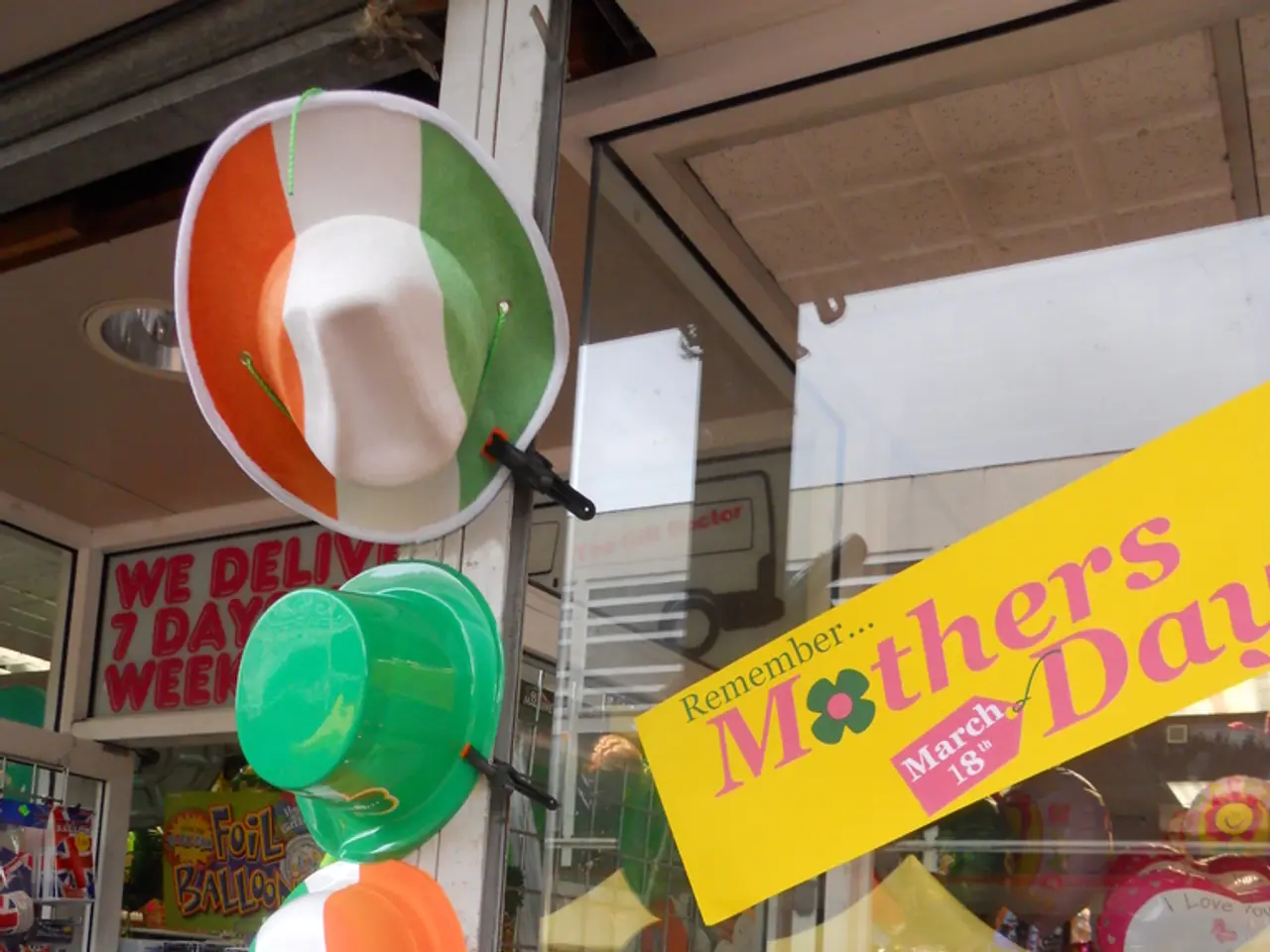Cultivation Manual for Miniature Pomegranate Trees
Pomegranate bonsai, with their vibrant foliage and edible fruit, make a delightful addition to any indoor or outdoor space. To ensure a healthy and attractive pomegranate bonsai year-round, it's essential to adapt your care routine to the plant's natural growth cycle.
**Growing Season Care (Spring to Summer)**
During the growing season, pomegranates require consistent moisture, ample sunlight, and regular pruning. Water the soil to keep it somewhat moist but not waterlogged. Pomegranates tolerate some drought but prefer consistent moisture during growth. Provide full, hot sun exposure to support flowering and fruiting. Lightly prune after flowering to shape the canopy and encourage new growth, removing dead, weak, or undesirable branches to channel nutrients efficiently. Apply fertilizer rich in nitrogen starting from the second year, supporting vigorous growth and flowering.
**Winter Months Care**
In winter, pomegranate bonsai need less water, but their soil should never become bone-dry. Reduce watering frequency significantly, keeping the soil just moist to prevent root damage. Remove dead or damaged limbs in late winter to prepare for the coming growth season. Pomegranate bonsai prefer warmer climates and full sun but can tolerate cooler temperatures with some protection. For colder climates, consider indoor placement or protection from frost.
**Additional Tips for Pomegranate Bonsai**
Use a well-draining, slightly sandy bonsai soil mix to avoid root rot. Hand pollinate flowers with a paintbrush or cotton swab to improve fruit set, as dwarf pomegranates are self-fertile but not great self-pollinators. Monitor for pests and adjust care if needed.
Pomegranate bonsai can be grown from seeds or cuttings of a dwarfed or full-sized plant. Bonsai seedlings need a lot of water, so it's important to check moisture levels and water daily. Pomegranate bonsai can take a few years to grow to a medium size (about 2 feet tall) and may even produce fruit just as quickly.
Remember, a healthy pomegranate bonsai can live upwards of 200 years. With the right care and attention, you can enjoy the beauty and fruitfulness of your pomegranate bonsai for many years to come.
- Caring for a pomegranate bonsai extends beyond its physical aspects and can reflect one's dedication to a sustainable lifestyle.
- Incorporating a pomegranate bonsai into your home-and-garden collection not only enhances the aesthetic appeal but also provides an edible treat from your lifestyle garden.
- Just as fashion-and-beauty requires regular maintenance, so does the health of your pomegranate bonsai, ensuring it remains a cherished pet and decorative fixture for years to come.




